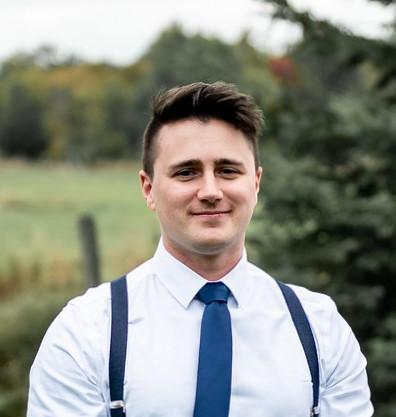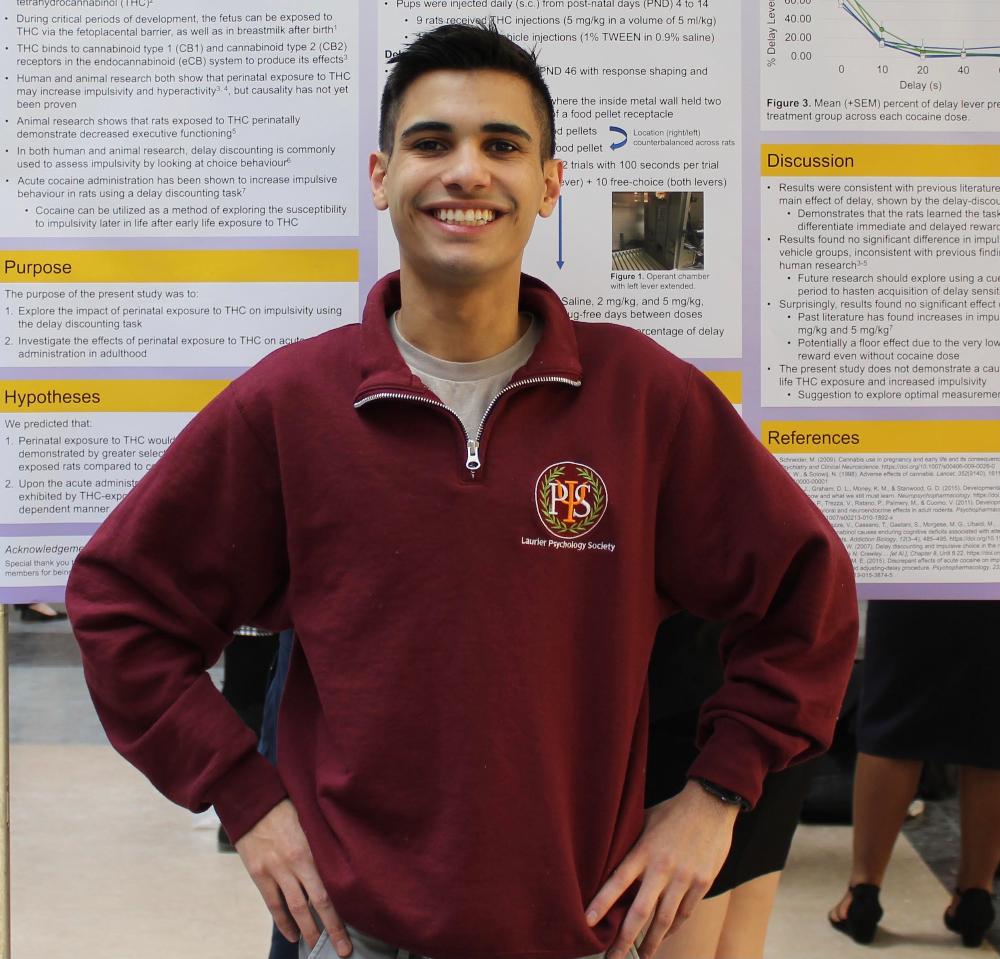In the MiNDS of our Students
Author: Shawna Thompson
Wondering what’s been going on with students inside and outside of the MiNDS program over the past few months? Shane Cleary, Vanessa Morris, Fahed Abu-Hijleh, and Sawarya Owais weigh in on their research and personal lives this fall.

Shane Cleary
1.Tell us about your research project.
SC: My project looks at how the peripheral immune system influences the brain and behaviour in children with neurodevelopmental disorders. Specifically, I am interested in the role gut-immune-brain signaling plays in anxiety. To that end, I’m analyzing markers of intestinal permeability, immune cell activation, and inflammation and seeing how they associate with anxiety scores and neuroimaging data of brain structures related to anxiety.
2.Why did you want to get into research?
SC: I practically just fell into it. One of my friends was working in a lab on campus during our undergraduate degrees, and he told me about all the interesting things he was doing. I went to talk to the PI a few days later, and by the end of the week, I was cooking pizzas for a study related to satiety and memory performance. I took on more responsibilities as time went on, and I liked what I was doing. I enjoyed it enough to finish an MSc, and now here I am doing a PhD.
3. At what point in your graduate career are you at right now? Anything big on the horizon in your world?
SC: I’m floating between the first and second year of my PhD. I had to take a medical leave of absence that lasted over a year, but my timeline is roughly ten months of actively being in the program. The next big step is a comprehensive exam. I’ll have to start the process in a few months, but I’m trying to pretend it doesn’t exist.
4. What do you like to do when you aren’t doing research?
SC: I’m working on starting up a Twitch stream and YouTube channel. My MSc was in nutrition, and I’m trained as a registered dietitian. Gamers are often stereotyped as subsisting on pizza pockets and soft drinks. While that’s just a stereotype, there appears to be a lack of general nutrition knowledge and cooking skills in the gaming community. As someone who enjoys playing video games, I’m hoping to bridge two of my interests and create content where I teach gamers the basics of nutrition and how to cook and meal prep.

Vanessa Morris
1. Tell us about your research project.
VM: My research examines the effects of substance and alcohol use (or abuse) on the human brain. I conduct my research using neurocognitive assessments, MRI, fMRI, and various other measures.
2. Why did you want to get into research?
VM: This is a tough question. I think a lot of what brought me to this point has simply been my overall admiration of the brain and my interest in mental health. I’ve found that research has allowed me a place to join these two fields, and to share my findings with people who may personally benefit from it.
3. At what point in your graduate career are you at right now? Anything big on the horizon in your world?
VM: I’m almost at the end; I’m planning to do my PhD defense in April 2021. Right now, there is one big thing on my horizon: writing my dissertation.
4. What do you like to do when you aren’t doing research?
VM: With any remaining time (and energy) I have, I can usually be found outside either running, hiking, fishing, or horseback riding.

Fahed Abu-Hijleh
1. Tell us about your research project
FA: My PhD thesis investigates two recently discovered trophic proteins, MANF and CDNF. These paralogs are protective against various endoplasmic reticulum (ER) stress disease models, such as diabetes and cardiovascular and neurodegenerative diseases. However, our understanding of how these proteins protect cells from ER stress remains inadequate. Also, functional differences between MANF and CDNF remain to be elucidated. My goal is to figure out the mechanisms behind how these proteins protect cells from ER stress. There’s way more to the project, but I’d rather not bore you.
2. Why did you want to get into research?
FA: I am really curious and enjoy solving problems. I feel like those traits naturally draw me to research. However, I fell in love with the idea of hypothesis testing after I took a 3rd- year hands-on research behavioural neuroscience class. Each student was paired up with a partner and got to take care of a rat and do simple behavioural experiments. After each experiment, you had to analyze the data and write up a manuscript. I felt like everything I’d been learning for the last two years was now being applied in real-life scenarios. From there, I joined the professor’s lab, volunteered, did a fourth-year thesis, and now I am here.
3. At what point in your graduate career are you at right now? Anything big on the horizon in your world?
FA: Last year I started as a master’s student in Dr. Ram Mishra’s lab. Since then, I have transferred into the PhD stream, so I am still pretty early in my graduate career. In terms of anything big on the horizon in my world, I just published my first-year master’s work in the journal Bipolar Disorders.
4. What do you like to do when you aren’t doing research?
FA: I am usually in the lab six days a week. That leaves one day where I try to have a life. During that day, I pretty much visit my family and friends. Since I am involved in many different projects, I always have something research related to do, which keeps things entertaining. The way I see it, we only have so much time to take advantage of this opportunity.
Sawarya Owais
1. Tell us about your research project.
SO: We do not have to look far to recognize the stark health inequities that exist between Indigenous and non-Indigenous Peoples living in Canada. I am interested in gathering accurate estimates of mental health challenges that exist, particularly in Indigenous moms and how those challenges impact her children. The ultimate goal would be to identify targets for intervention so we can not only intervene earlier in life, but also develop culturally safe treatments.
2. Why did you want to get into research?
SO: Ever since my undergrad, I knew that I loved being in an environment of constant academic learning and so graduate school was a natural inclination for me. For me, one of the coolest things about research is coming up with questions (based on literature, based on clinical experiences etc.) that you're interested in, and then designing experiments and collecting your own data to answer those very research questions. In fact, it was my personal experience growing up in Kitimat, B.C. (adjacent to the Haisla First Nations reserve), combined with my academic interests in maternal mental health, that led me to where I am today!
3. At what point in your graduate career are you at right now? Anything big on the horizon in your world?
SO: I am in the third year of the MD/PhD program, so I have completed a year of my PhD, a year of medical school, and am now in the 2nd year of my PhD studies. During my PhD, I am looking forward to continuing co-hosting SOMA events with Kevin!
4. What do you like to do when you aren’t doing research?
SO: I really enjoy making birthday/greeting cards. A few years ago, I was at Dollarama looking for a birthday card for my friend and I realized that rather than spending $1.13, I could just make something at home for free. Initially, my birthday cards started out as a piece of paper folded in half with 'HBD' written in bubble letters but thankfully a few YouTube tutorials and Google image searches have allowed me to become a tad more sophisticated. I also really enjoy watching and listening to funny gameplay commentary.